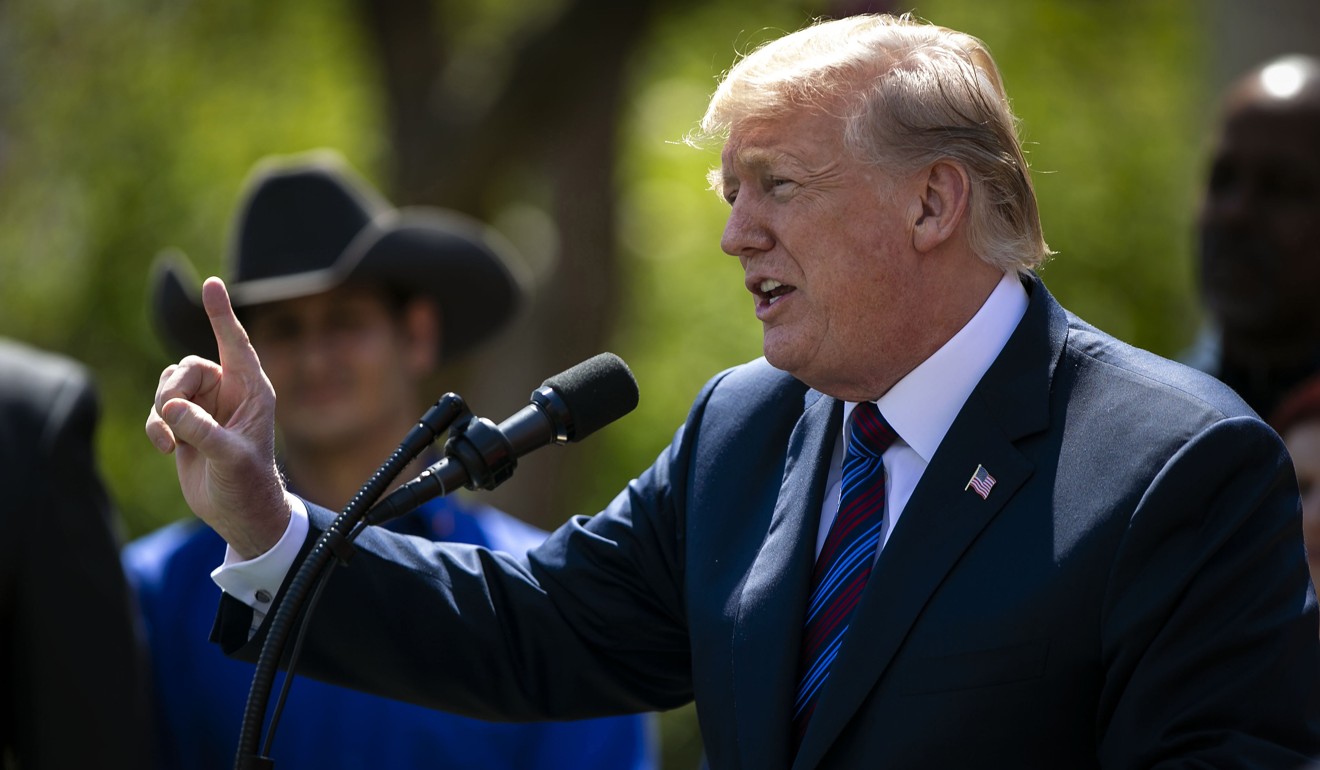
ZTE may have received a US reprieve, but China Mobile is next target
Congressional appropriations restrict Chinese telecoms, but stop short of the components ban that the Commerce Department had recommended
When the US House of Representatives passed its defence appropriations bill on Thursday, it might have seemed that by addressing strong national security concerns, it took steps to sharply restrict involvement with Chinese telecommunications companies – including, on Monday, China Mobile.
In fact, though, the bill may well have saved ZTE from harsher penalties that would have threatened the company’s existence – tougher actions that were gathering momentum in the Senate just a week earlier.
Trump administration moves to block China Mobile entering US market
Unlike the Senate bill, the House amendment excluded language prohibiting ZTE from buying components from American suppliers for seven years.
“Once the amendment to reinstate the ZTE ban failed, we were a done deal as far as I am concerned,” Henrietta Treyz, director of economic policy research at investment consulting firm Veda Partners, said, referring to the House action.
“I feel very comfortable saying that the ZTE deal is done.”

A growing point of friction as a US-China trade war develops, the issue of what to do about ZTE threatened to swamp congressional support for Trump’s tactics concerning trade relations with China.
Trump early last month scuttled the Commerce Department penalties against ZTE, in a move he called a favour to Chinese President Xi Jinping.
The move against China Mobile shows the US government’s continuing security worries about state-owned Chinese businesses.
ZTE phone sales likely to slump more than half because of US export ban
“After significant engagement with China Mobile, concerns about increased risks to US law enforcement and national security interests were unable to be resolved,” said David J. Redl, assistant secretary for communications and information at the Commerce Department.
The Federal Communications Commission should deny China Mobile’s application, submitted in 2011, the National Telecommunications and Information Administration (NTIA) said in a filing. NTIA is a branch of the Commerce Department.
Trump’s ZTE intervention met with significant resistance from the Senate, with many members, Republican and Democrat alike, calling ZTE a national security threat.
ZTE appoints new chairman in another step toward lifting of US ban
Trump, in a meeting with Republican Senators last week, urged them not to undermine his deal, stressing that it was part of a broader geopolitical negotiating strategy with China. In a response to the passage of the Senate bill, the White House issued a statement that it strongly objected to the ZTE provision.
Since that meeting, the White House and a bipartisan group of senators have been negotiating to restrict ZTE’s business in certain areas to ensure national security while not cutting it off from its American suppliers.
The bill the House passed on Thursday strikes a middle ground between the positions the White House and the Senate have taken, and suggests the eventual compromise to be struck.
Last week, a bipartisan group of senators behind the campaign to reinstate the ban – Republicans Marco Rubio and Tom Cotton, Democrats Chris Van Hollen and Charles Schumer – sent a letter to the Commerce Department, asking for clarification on how the ban would affect American companies that use ZTE products.
“They’re basically admitting up front that they have backed away from their very restrictive amendment by saying ‘we want you to provide guidance to businesses to tell them how to act with ZTE, a tacit admission that they have backed down,” said Treyz.
The legislation is now headed to conference, to be reconciled by the House and the Senate before being sent to the president to sign.


